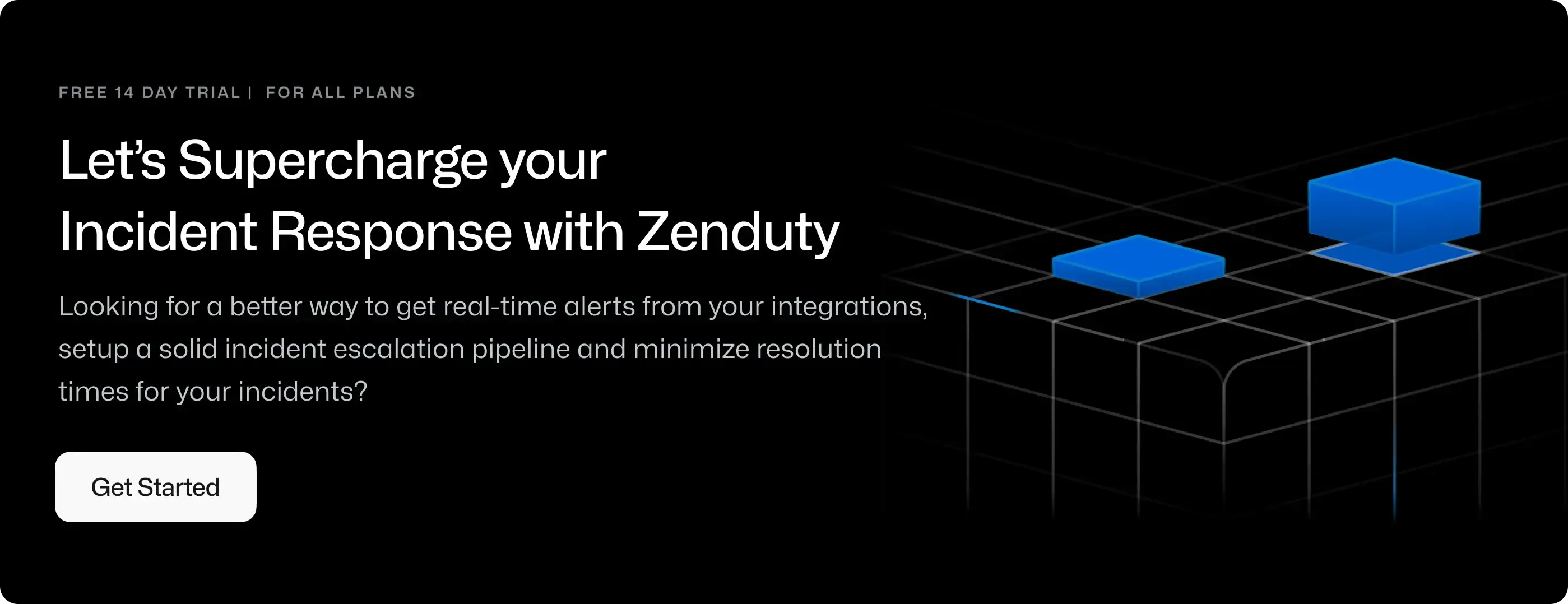Librato Integration Guide
Librato, from SolarWinds, easily aggregates your cloud metrics into real-time monitoring dashboards for instant visibility.
What can Zenduty do for Librato users?
With Zenduty, you can receive alerts that are generated from Librato via phone call, SMS and email, set up automatic escalation of alerts and set up on-call duty scheduling for your ops teams.
Whenever Librato triggers an alert based on a predefined condition, Zenduty will create an incident. When that condition goes back to normal levels, Zenduty will auto-resolve the incident.
You can also use Alert Rules to custom route specific Librato alerts to specific users, teams or escalation policies, write suppression rules, auto add notes, responders and incident tasks.
To integrate Librato with Zenduty, complete the following steps:
In Zenduty:
- To add a new Librato integration, go to Teams on Zenduty and click on the team you want to add the integration to.
- Next, go to Services and click on the relevant Service.
- Go to Integrations and then Add New Integration. Give it a name and select the application Librato from the dropdown menu.
- Go to Configure under your Integrations and copy the Webhook URL generated.
In Librato:
-
Log In to Librato.
-
Click on Settings in the dashboard and then Notification Services.
-
Select Webhook from Notification Services.

-
Click on Add Configuration under Webhook.
-
Enter the title of the webhook and under URL paste the link copied earlier. Add.

-
Go back to dashboard and click on Alerts. Click on create new alert.
-
Enter the alert name , alert description, and trigger duration.

-
Click on create a new condition. Set the condition type and select the metric on which it has to be alerted.

-
Set the threshold value and the notification duration.
-
Click on add condtion at the top right corner of the screen.
-
Click on Notification services and click on Webhook. Select Zenduty Webhook.

You have successfully integrated Librato with Zenduty.
